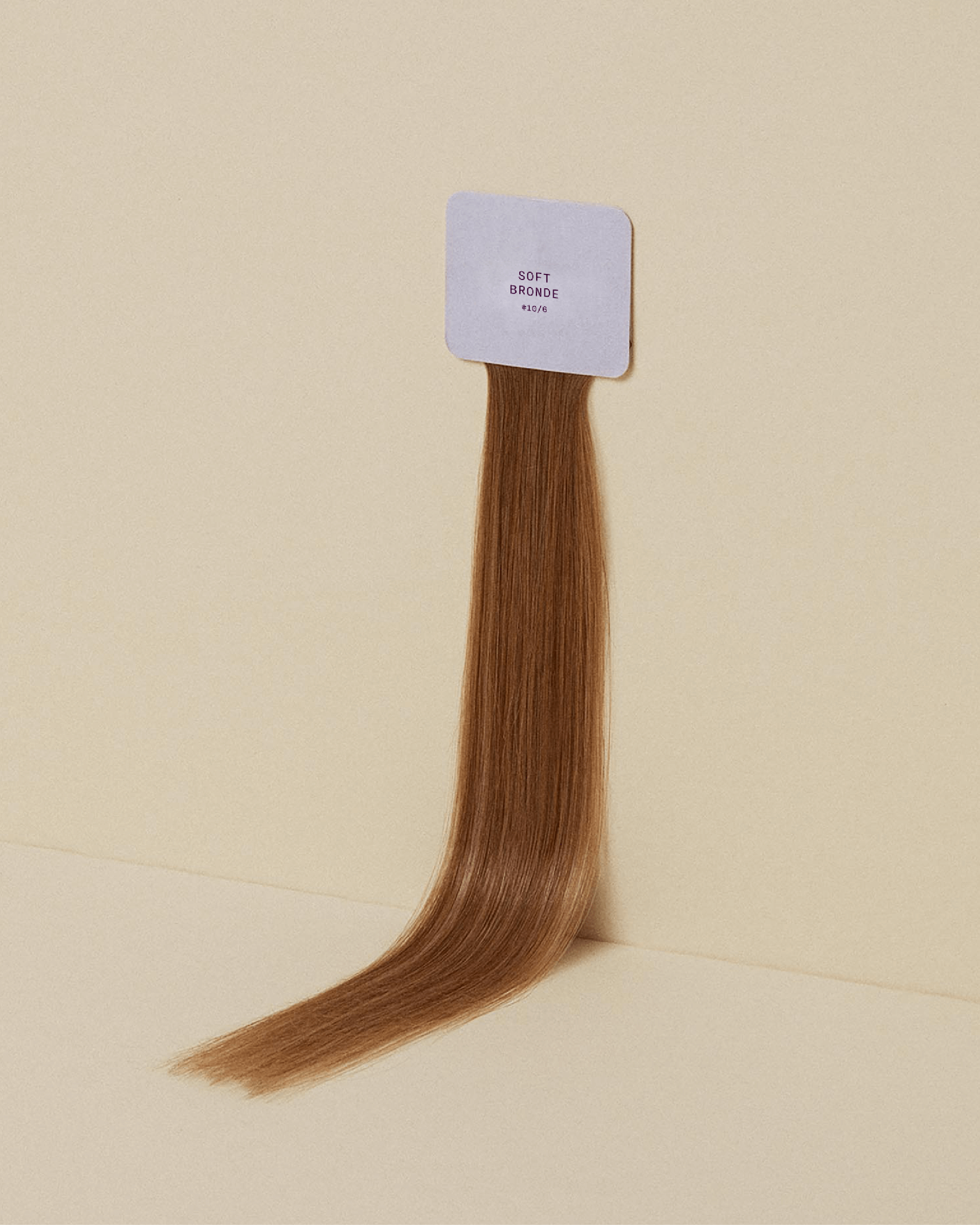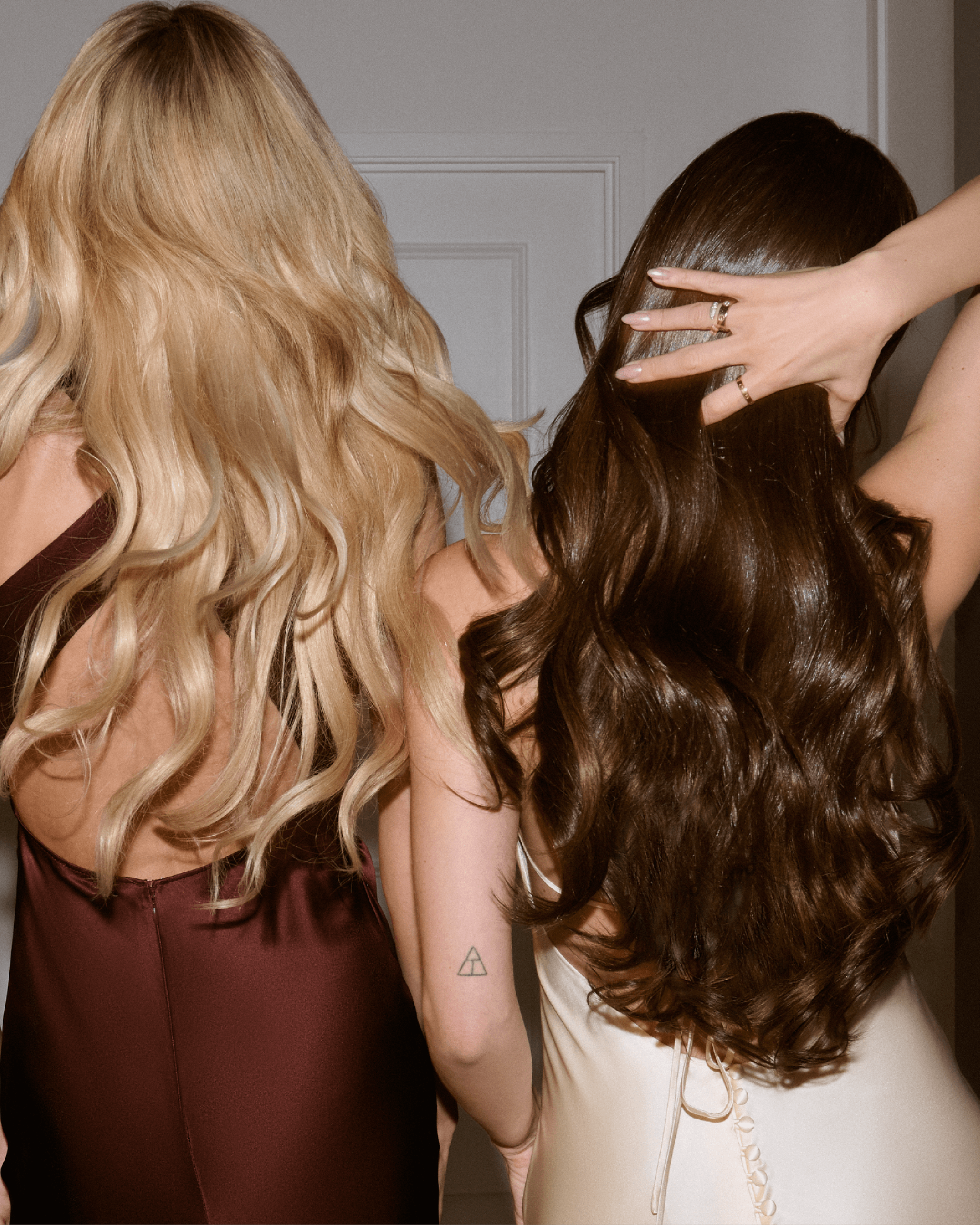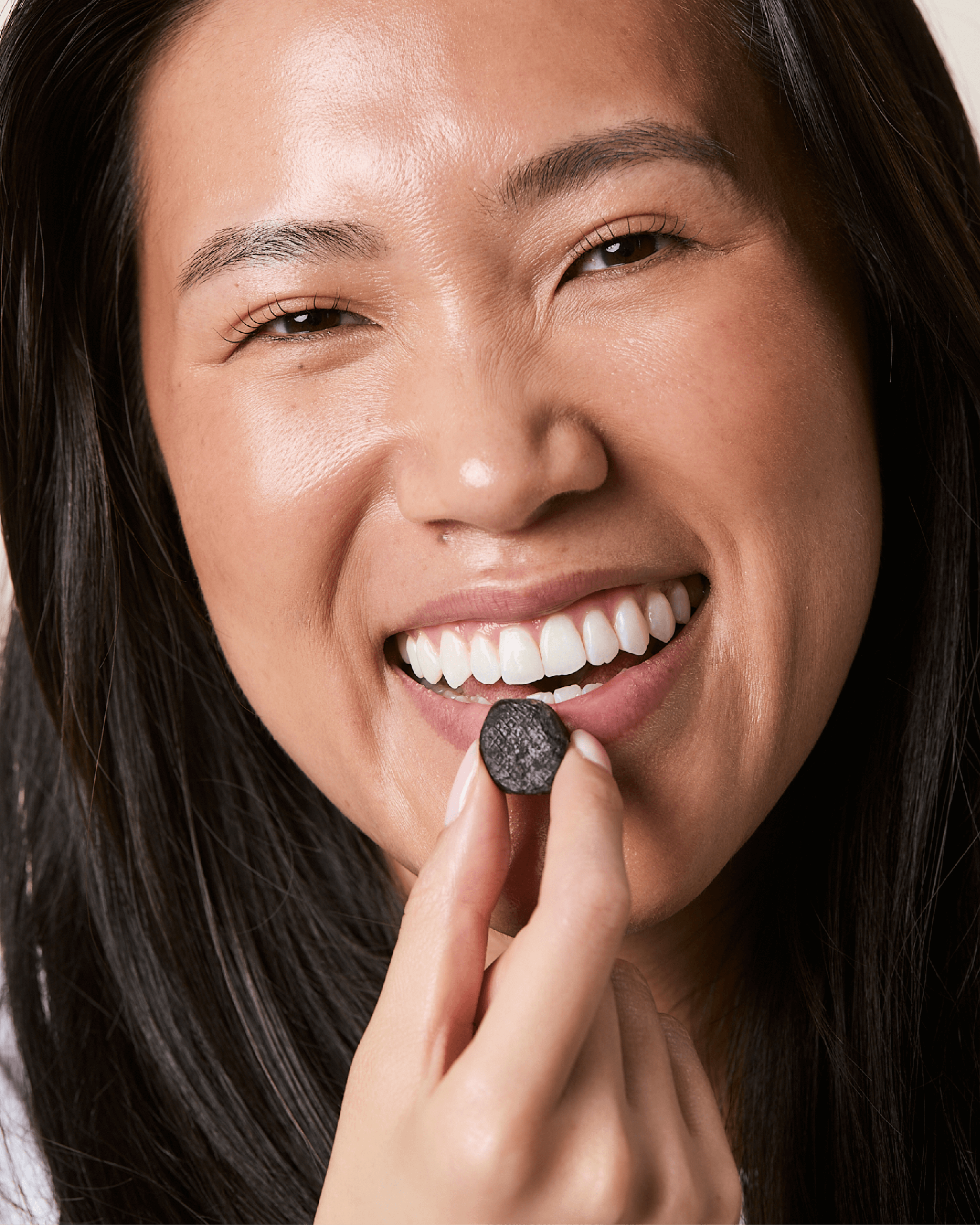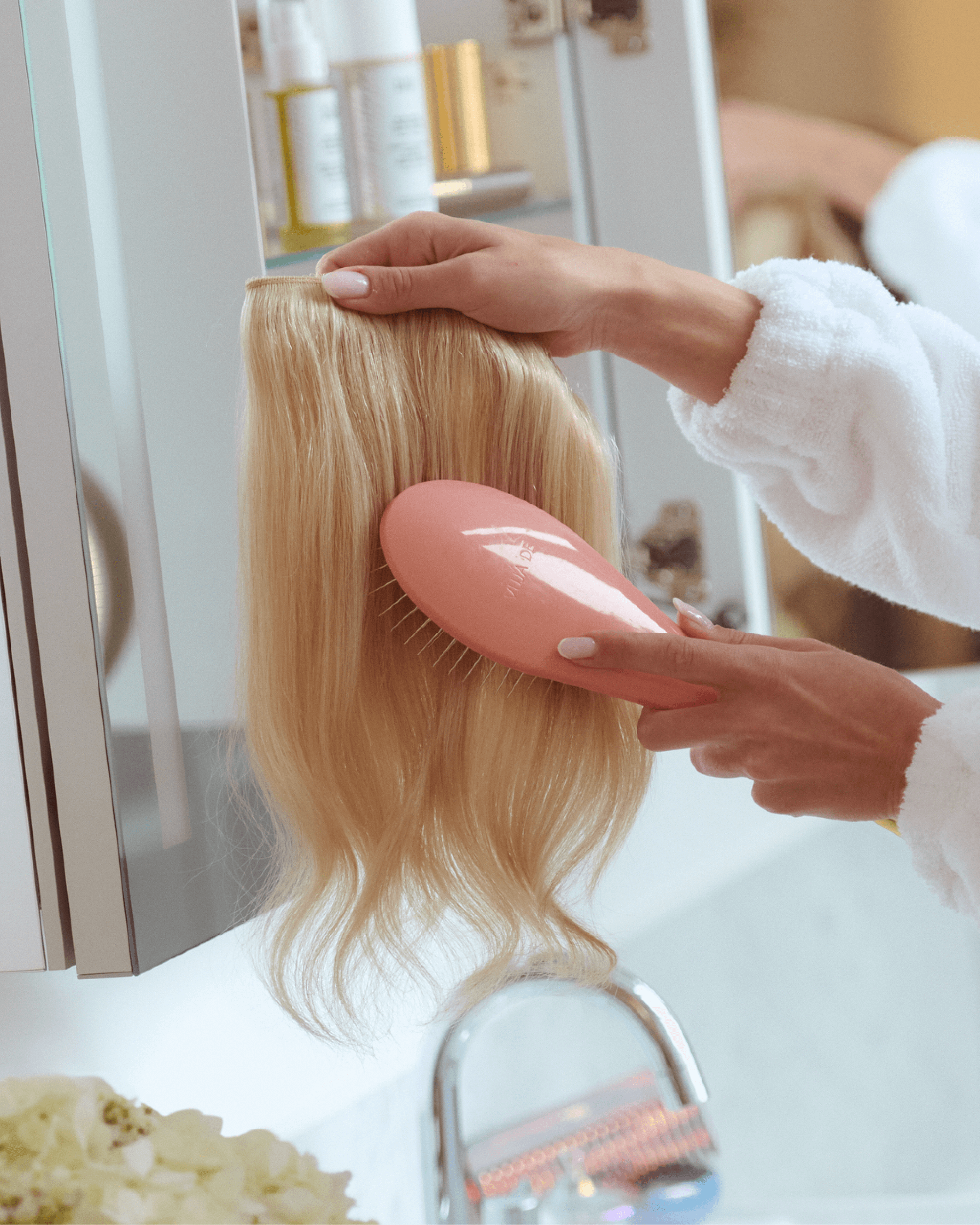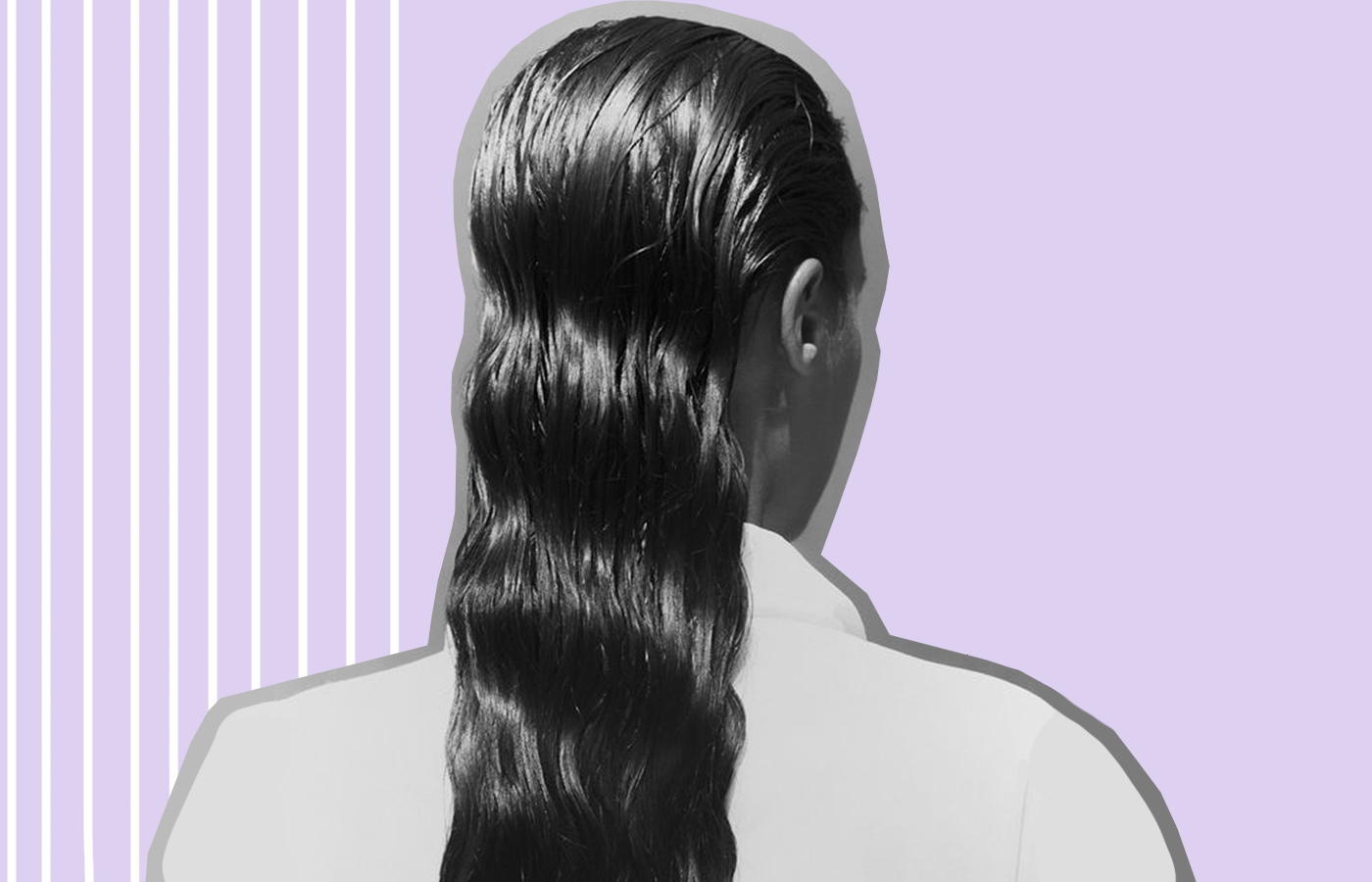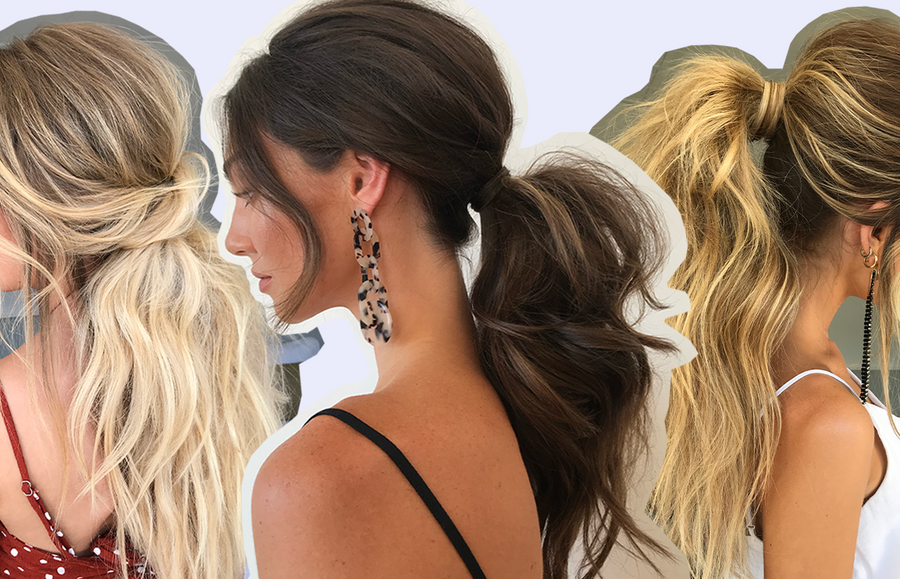At SP, we’re big fans of washing your hair less. And you’ll usually see us stanning scalp sebum (most of the time!) but for scalps who are at odds with their oil levels, we get the need for oily hair remedies too.
If slicking your hair back into an oily hairstyle just isn’t doing it for you anymore, there are simple oily hair treatments to alleviate grease glands, or at least make strands a little less slick. As always, if you’ve been trying to get rid of oily hair and your scalp isn’t budging, talk to your doctor about other possible solutions–your hair might be trying to alert you to a bigger problem!
More on scalp health below:
Products to Fix Oily Hair
In order to navigate how to get rid of oily hair, you’ll need to figure out how long your hair’s been battling the deep fryer. If oily hair is a relatively new thing for you, it could be an issue with your routine: such as over-washing or product-buildup. If you’ve always had an oily scalp, or deal with oily skin too, your oily hair may be more genetic or hormonal based.Some brands out there offer great oily hair remedies, but note that some products will work better for you than others depending on the cause of your oily hair.
Absorb Oil with Dry Shampoo
Usually the first thing to come up when you search how to get rid of oily hair is dry shampoo. Tried and tested, it’s a saviour and you’ll seldom find someone who doesn’t swear by it! That said… dry shampoo shouldn’t be leaned on daily as an oily hair treatment.
While the alcohol and/or starch-based aerosol absorbs excess oil and gives a refreshed look to locks, you’re adding more product to an already built-up scalp. Using this too often can clog follicles, cause severe dryness and breakage, and they usually have a fair bit of chemicals to boot. So use sparingly and avoid toxic ingredients whenever possible.
Read Next: Scalp Bacteria: Is It Good or Bad For Hair Growth?
Use the Right Brush
The hairbrush you’re using may not seem like a hugely important factor in keeping your scalp grease-free, but opting for a natural bristle brush can spread the nourishing oils from your scalp to the rest of your hair. That’s right: scalp sebum is amazing in its own hard-to-love way.
Go for a natural bristle brush, such as a boar bristle brush (or faux boar!) to help disperse nourishing scalp oils from your roots down the strands. A high-quality natural-bristle brush will even absorb some of the oil on its way down your hair too.
Create a Simpler Shampoo Routine
One more time for those in the back: washing your hair less can make it less oily. You may be stripping your hair of its needed oils so it’s working OT trying to compensate. Get back to basics by using a gentler shampoo along with occasionally doing a clarifying shampoo.
Clarifying shampoos are great oily hair treatments when used properly. As in, you’re not over-clarifying your scalp and instead you’re using them in tandem with a regular shampoo. Also! If you’re still using conditioner on your scalp, focus it on ends to reduce oil too.
The Ones We Heart:
Use Scalp Exfoliants
Another way to master your in-shower routine (and reduce build-up) is by routinely exfoliating your scalp. You can use a salt scrub that works as a physical exfoliant or a leave-in treatment that exfoliates with AHAs/BHAs but both will tackle build-up effortlessly.
When you exfoliate your scalp, you remove any surface grime while getting in and around the follicle to pull out anything that may be hiding away. This is definitely how to stop oily hair if yours is arising from product-buildup.
Swap your Pillowcase
Silk pillowcases really are worth the hype for many reasons—science being one of them! And for those asking how to get rid of oily hair, they do just that! Switch out your cotton pillowcase for high quality silk, not satin.
Silk is proven to reduce the oil production in your scalp, as well as preventing frizz and tangles. It may even be worth considering switching to silk hair ties too for added damage-control.
Read Next: The New Routine: How to Clean Scalp Buildup
At-Home Oily Hair Remedies
Looking for how to get rid of oily hair at home instead? DIYs can be total hair hacks waiting to be discovered in your kitchen. When using the natural path for hair and beauty, buy organic whenever possible to get the highest quality sans unexpected flavouring, colourants, and preservatives.
Brew Up a Tea Rinse
Big on our IG saved folders this year, DIY rinses are amazing for solving oily hair. Tea, and its naturally anti-oxidizing benefits, helps combat grease by clearing and clarifying hair follicles, meaning sebum is kept under wraps! The caffeine in these teas will give you shinier and strengthened locks too.
To combat grease, brew 2-3 bags of unflavoured black or green tea and allow the tea to cool before using it to rinse your scalp. After pouring (focusing on the scalp), allow it to sit for 15 minutes before washing it off.
Read Next: How Scalp Exfoliation Can Fix Your Hair Drama
Wash with Apple Cider Vinegar
If you’re into at-home hair remedies at all, you’ve probably heard of using apple cider vinegar (ACV) before. We love it. And you should too for its antifungal, pH balancing properties that are particularly amazing for clearing excess oil.
Dilute 1 part ACV with 1 part water and use as a rinse between shampoo and conditioner. Let it sit for a few minutes while you’re in the shower before rinsing it through with plain water. This stuff’s great from root to end and can restore tired locks too.
Scalp Scrub with Baking Soda
You can go Goop and buy a salt scalp or make an equally effective one at home! At the end of the day, DIY scalp exfoliation is super accessible at home and those scalp scrubs are really are just made of stuff you can get at home *wink*
How to stop oily hair at home: combine 3 tablespoons of baking soda along with 1 tablespoon of coconut oil and a few drops of water. Just massage this into your scalp and leave for 15 minutes before rinsing. Baking soda’s granular texture physically lifts and removes dirt and oil from the scalp, while coconut oil on hair prevents dryness or stripping.
